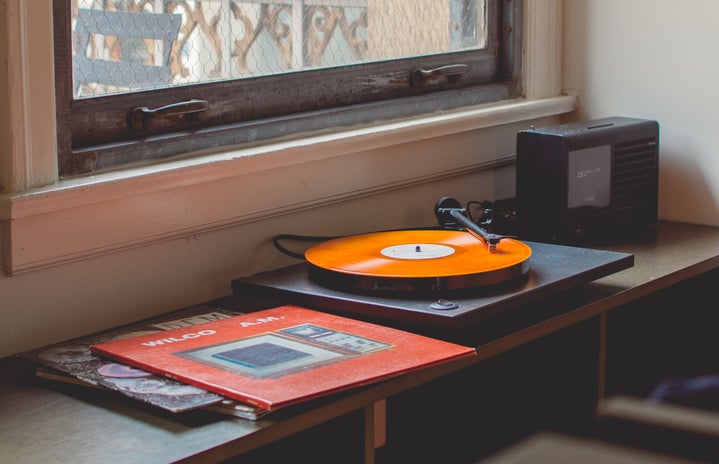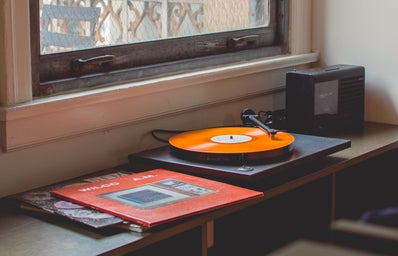I listen to music 24/7; in the car, in the shower, and on my way to class — always listening to music. Like most, I listen to all kinds of music under the sun, but a genre that I often don’t find others to with about is music created by film and TV composers. I wasn’t always interested in film and TV scores, but as I became more interested in film production in high school, I began to note how beautiful, fantastical, and sometimes haunting film scores could be. Now as a film student, it’s more blatant how film scores elevate the stakes for a story and make you feel a certain way — something that a film or TV show cannot achieve as well on its own. Sure it can be done, but why wouldn’t you have a score if it can elevate the emotions of the story and set a tone?
Before we get any further into the topic, I think it’s relevant to distinguish between movie scores and movie soundtracks. Movie scores are what’s written specifically for a movie by a composer. They’re sought after to write something memorable that will match the themes and tone of the film. Oftentimes, film composers will speak with the directors of the film beforehand about what the director’s vision is for the film and what kind of unique sound should be brought to represent the film.
On the other hand, there are movie soundtracks, which usually are a compilation of popular music that are not specific to or made just for the movie. For example, the Guardians of the Galaxy trilogy is known for having good soundtracks — they use songs like “Mr. Blue Sky” or “Hooked on a Feeling” — all songs that exist (and have existed for quite a long time) separately from the movie. Baby Driver is also known for having an upbeat soundtrack with a multitude of artists and songs. Many of its songs are from the ‘60s and were written and sung way before the movie’s existence; all the songs were simply compiled and marketed as the film’s soundtrack.
Why scores matter
I remember reading an interview by Nylon where they interviewed film composer Carter Burwell. The interview was centered around Twilight and the song “Bella’s Lullaby,” which was mentioned first in the books and adapted to fit the screen to comply with the extreme desire fans had to hear this important musical piece that was a crucial part of the book. Originally, Carter Burwell was unsure of whether to come on the project and felt immense pressure to satisfy fans of the books. In the end, the fans had such an incredible love for the song to the point that it became extremely popular among fans when the movie came out.
Burwell stated his surprise over the popularity by saying, “…of all the films I had done, I had never gotten that direct response from fans. It’s not typically like that being a film composer [laughs]. I’m very happy being sort of hidden from view and usually prefer to not even get involved in that relationship with these people I don’t know, I’m just a private person. But in the case of Twilight, there were so many e-mails, I mean thousands, from people who were mostly young and very sincere and they wanted to know how to play “Bella’s Lullaby…”
In this case, fans rose to the occasion to send their love for a great song. Even today fans are still enamored with the song, making its rounds on TikTok after its release years ago.
Essentially, I think film and TV composers should get more recognition because their work does mean something and is a vital part of a viewing experience.
TV scores
While I love film scores to death, I’ve found TV scores in particular are amazing. I feel they are often even more overlooked than movie scores. Streaming platforms know that scores are an integral part of a show’s ambiance, so much so that they will release the score to fans to be bought and listened to—similar to what any blockbuster or Oscar-nominated film score will do. For the longest time, HBO has created some shows with incredibly classic scores that to this day could still be identified by fans. While this is most obvious by fans’ enamor with the Game of Thrones & The White Lotus theme song, fans sometimes will not look deeper than that. They cannot see that there is a multitude of amazing songs within the actual show not just in the first few minutes of the show. It’s interesting because I’ll see TikToks of people commenting on how addicting these theme show songs are and yet their extent of knowledge behind the music stops there.
HBO isn’t the only one to have stellar scores. Netflix also has its fair share of scores ready to be explored within shows like Ozark, Stranger Things, and Narcos. The same goes for Hulu. Did you love Normal People? There’s a very reminiscent score for that show too. So this is your notice to do some little investigation further into a show’s score especially if you like the theme song.
Unreleased Scores
It’s always quite disappointing to me when a show or movie doesn’t have its score available to the public. Oftentimes, it’s TV shows that won’t release their scores and, while rare for a film not to release the score, it’s not unheard of But if I hear a beautiful composition within a movie or show, I find it’s always worth checking to see if it’s available.
Midterms, Finals, & Scores
I’ll listen to film scores in my free time, but the times I listen to them the most? During midterms and finals or just anytime I need to concentrate. Because movie scores are instrumental, they don’t have lyrics, so you are not distracted as easily and it still allows you to listen to something. Lyrics can make a student focus on the words rather than the material being studied. Instrumental music, on the other hand, can provide background noise that can be helpful to keep the mind focused.
As I stated previously, movie scores also enhance emotions and create a mood. Composers use musical techniques such as tempo, rhythm, and melody to convey different emotions. While some scores can reflect the rage, intensity, and chaos included within the plot of TV shows and films, they also contain some of the most calming and rejuvenating music I’ve found in any genre. These types of scores can help to create a calming and focused environment while studying.
Additionally, movie scores are often long and continuous. This can be helpful as it allows for uninterrupted studying. The music can provide a consistent background noise that can help to block out any external noises or distractions.
While I’m the type of person who can still concentrate with any type of music on, I’m still human and will still get distracted if I’m not in the right headspace — film scores help me focus so much more than a regular playlist could. They help me get in the right headspace and they could help you too.
Recommendations and Where to Start
My personal preferences for scores include piano or violin instrumentals. I enjoy a serene and heart-wrenching sound. For example, the songs “There’s No Place Like Home” from the TV show Lost or Ramin Djawadi’s song “The Night King” from Game of Thrones fall within this category. The violin instrumental in the song “Hollow in the Ferns” from the film Far From the Madding Crowd is another one that calms me. However, it is not the only thing I listen to within my own movie/TV score playlist, which I’ve included in this article. There is a variation—there are synth-wave and retro sounds like that of Stranger Things; there’s intense “chasing scene music” for when I need an extra heightened sense of motivation.
Some of my favorite composers include Nicholas Britell (Moonlight), Hanz Zimmer (of course), Alexandre Desplat (Harry Potter and the Deathly Hallows PT 2, The Shape of Water), both Randy and Thomas Newman, and Ramin Djawadi. Djawadi always has great music. For the show Westworld, he even made instrumental versions of Kanye West’s song “Runaway” and The Weeknd’s song “Wicked Games” for the show.
These are just a few scores that could be at your fingertips. So next time you want to find just the right mood for your escapades—whatever they may be—turn to a movie or TV score!


